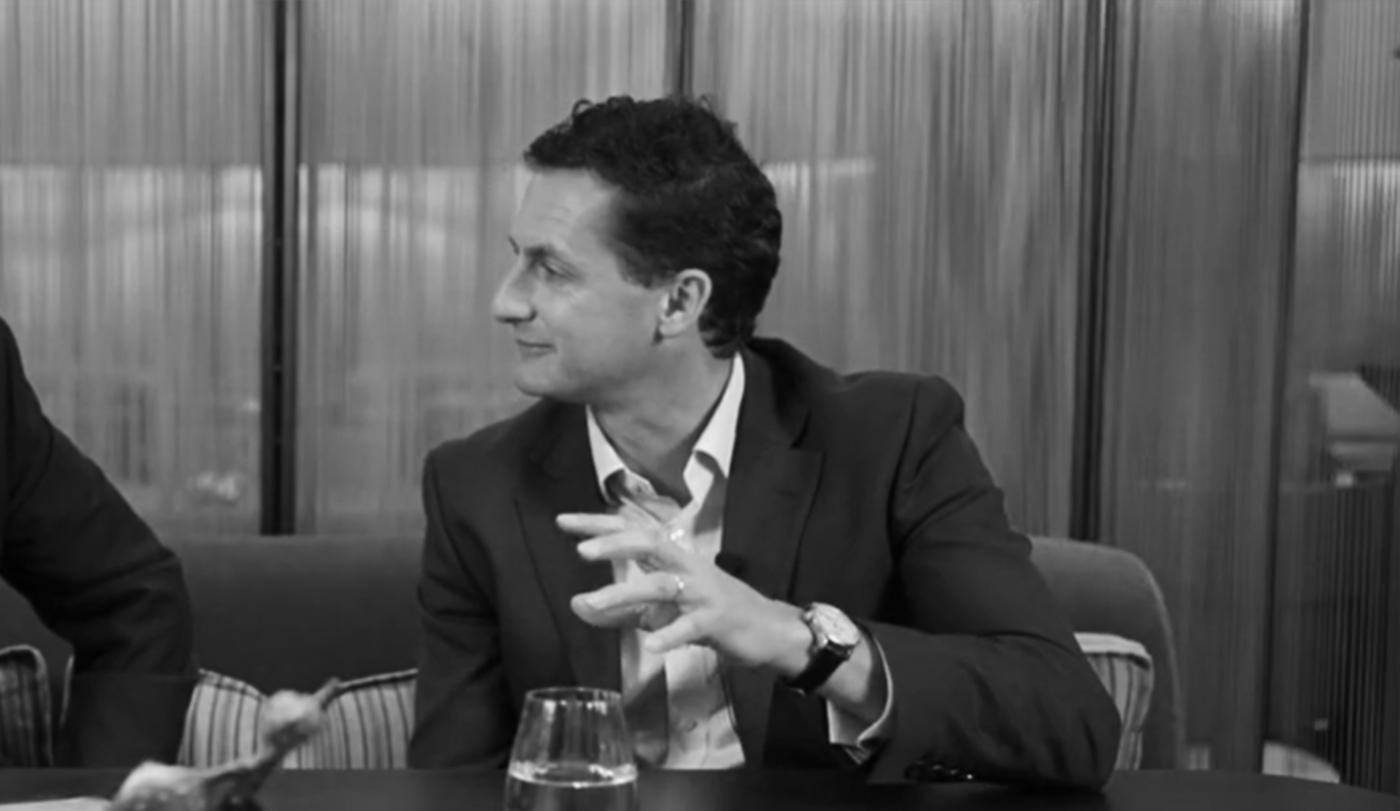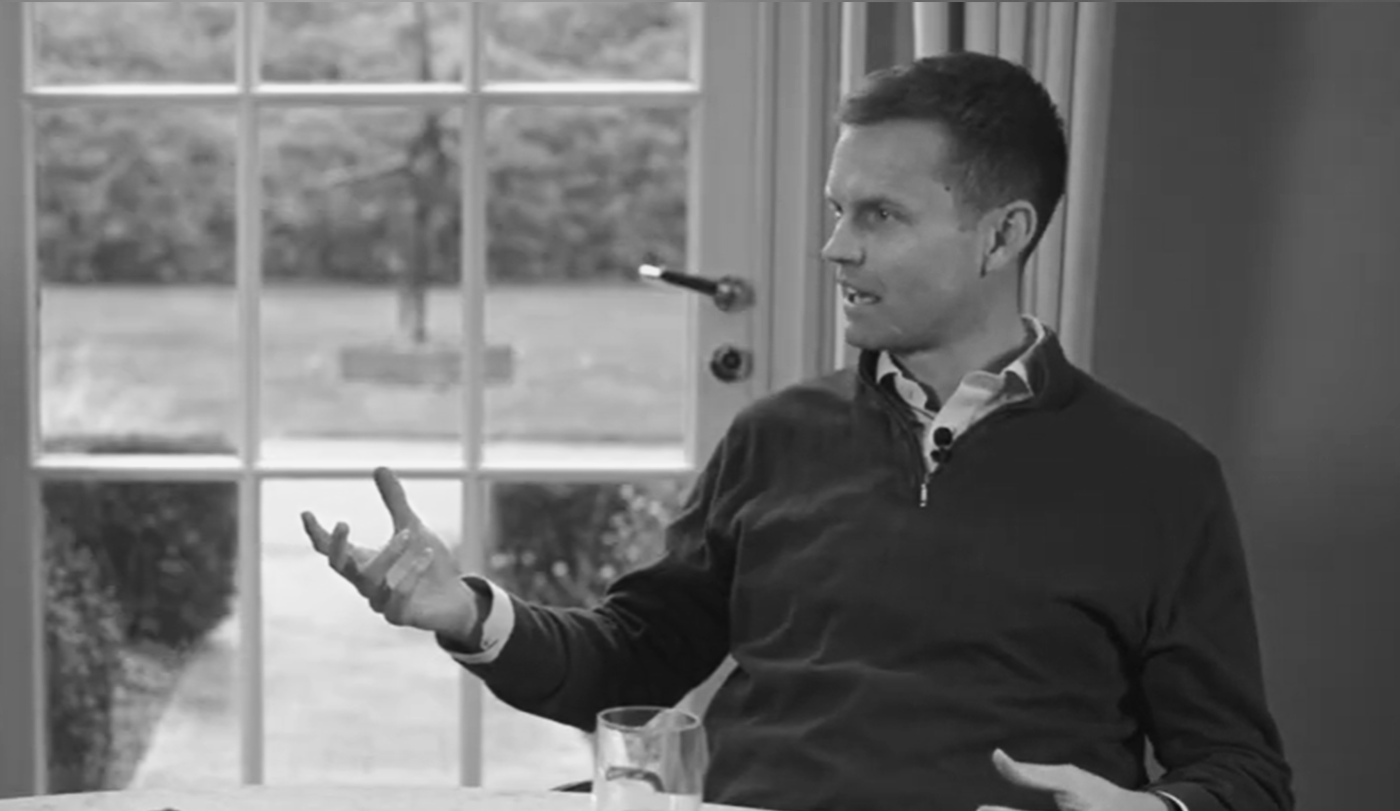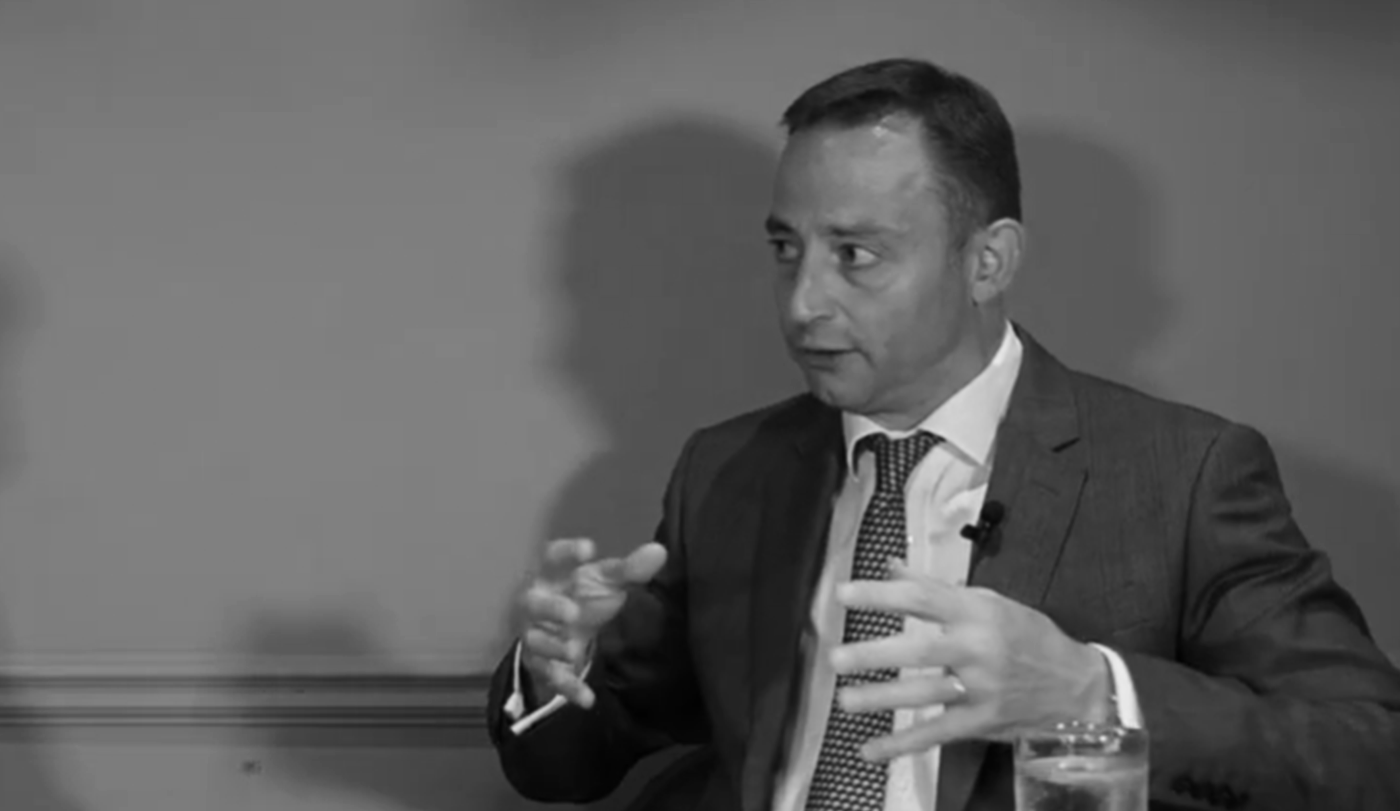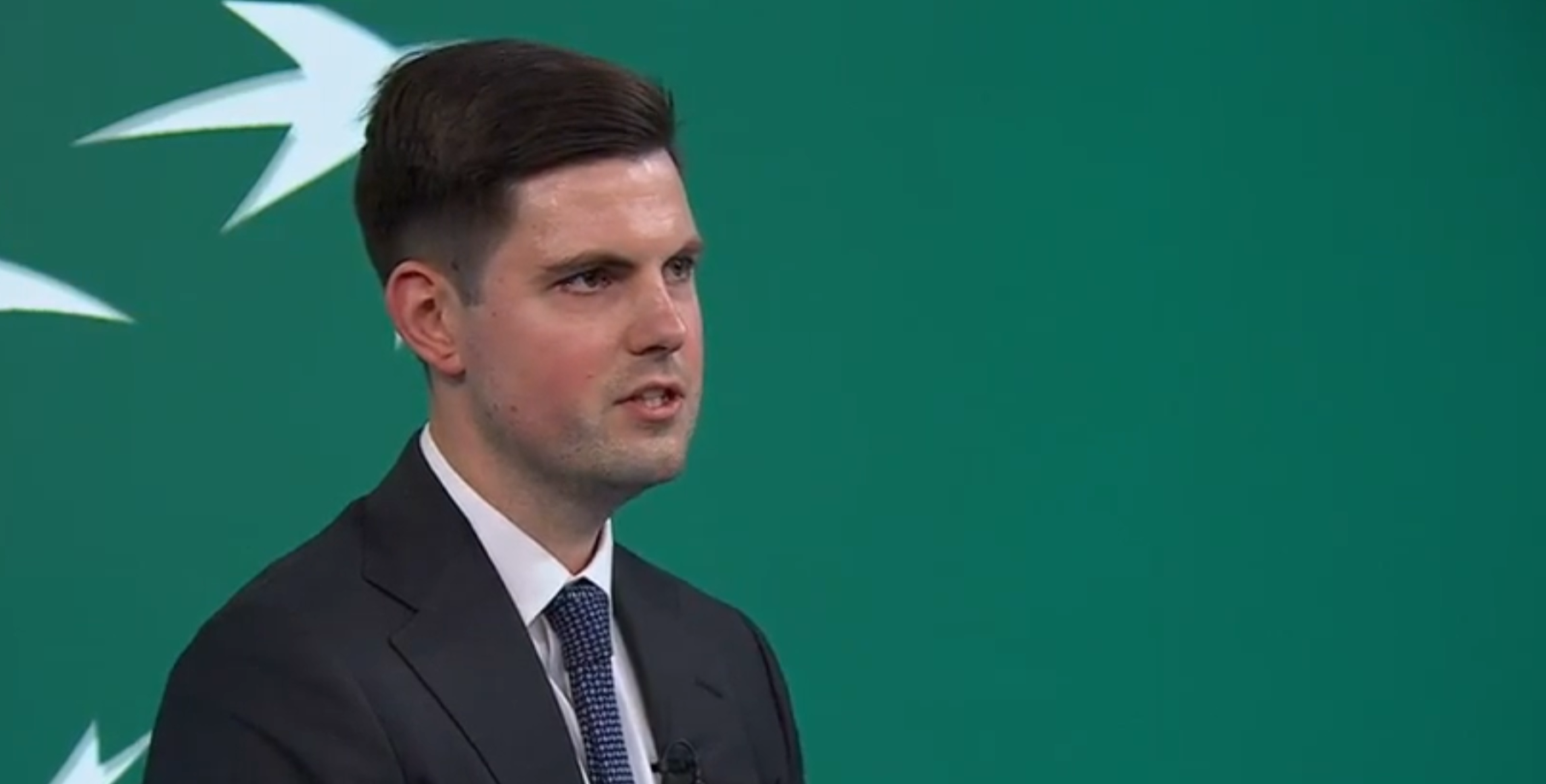A short clip from our series of interviews with UK fund researchers and fund selectors - plus episode transcript
Transcript of ‘Choice Words’ Episode 2:
Peter Toogood, with Julian Marr
JM: Well, hello and a very warm welcome to another instalment of ‘Choice Words’, our video series where we get to hear from key decision-makers in UK fund selection and fund ratings. I am Julian Marr, editorial director of Wealthwise Media, and today I am delighted to be talking to the CIO of The Adviser Centre, Peter Toogood. Hello, Peter.
PT: Hello. Julian.
JM: The aim of this little chat is to find out a little bit about how you think about life, both within the world of investment and beyond it; what brought you into the business and what keeps you in the business; and what makes you and your firm tick. So easy-peasy – we will knock this off in five minutes, no worries – and a nice, simple one to start with. What excites you about the current investment outlook? And is there anything that worries you?
PT: There is lots that worries me but the opportunity is bifurcation – very different things going on in different markets and in different asset classes. So it is not all a ‘doom and gloom’ scenario. But bear in mind, my job is to talk to fund managers every day and we do – it is our ‘constant audit’ – and if I was to take fixed income as a very good example, there is no spread in investment-grade and there is no spread in high yield. Now, when you are talking to managers whose main job is to excite their customers with nice, big, fat yields, they have a bit of yield but they haven’t got much on top of that yield – you know, your government bond is where it is, and your sort of ‘excess’ for getting an investment-grade or a high-yield bond into your portfolio is not that auspicious. So nervousness, I would say, in the fixed income element.
A second element of nervousness would definitely be US equities. You walk into the new year with the second highest P/E multiple since 2000 plus you have higher price-to-sales and higher price-to-book ratios. So you don’t start in a good place on a valuation basis on the back of that. Against that, obviously, is the same old thing about the potential for deregulation, for ‘Trumponomics – should we call it that now? I don’t think it’s been badged that yet – and there may be some more freewheeling approaches to markets. And then you have the rest of the world, which is not in the same place. The rest of the world cannot be described as overtly expensive. It is not desperately cheap but if you take the UK on 12x earnings, if you take Europe on 13x or 14x and Japan on the same, opportunities abound within those markets. So not a ‘Bleak House’, not 2000 in every respect – but, for someone of my age, who was running money in that era, shades of hubris and exuberance. And I guess it is defined most of all by some of the enthusiasm for the ‘Mag Seven’, definitely enthusiasm for Bitcoin and, without doubt, the enthusiasm for private assets – all of which will have their own little special moment, I suspect.
In search of consistency
JM: Well, we might get on to that but – after that little introductory rollercoaster of emotion for me – as you say, you are out and about seeing fund managers, left, right and centre. What do you most look for in an individual investment, in an individual fund, when you are writing it up? And what do you see as potential red flags?
PT: OK. It is owned by a person. It can be a team but predominantly – we haven’t changed over 30 years, as you know, Julian – it’s actually about focusing on the individual. And the most obvious question to always ask is, Why do you run it this way? Not, How? From that, you will extrapolate a series of things about the scope and nature of the fund and how the manager is thinking. And I rely very heavily on evolution, not revolution – so the person I meet at 30 or 35 is likely, with a few more jaded moments, to be the same person when they’re 55. And so we are looking for consistency – we want to understand how the performance that we may be looking at, at that point, has been generated. We sort of audit that – Oh, OK, you are a value investor, growth investor, small or mid-cap or whatever. We can check that – and then we can just audit through time to see a consistency.
And what we want to see is, we have badged you this, we have characterised you this way – whatever ‘you’ may be: again, the collective or the individual. We want to see consistency in that and that allows us to be unsurprised when it is a deep-value rally and all our value recommendations are flying; or it is a deep-growth moment and all the growth funds are flying. By the way, at the moment, they’re not all flying, which is another caveat – but the point being, we are just looking for consistency. It is all about an audit, which goes back to me as a failed accountant – I still want to see and understand how you generated the performance. Empathise with the fund manager, understand the backdrop, don’t ask inane questions when you walk into the room that you should know anyway – make them feel that the meeting is worthwhile. Anthony Bolton is great example. Great investor – half an hour in with Anthony, he used to shut his book and say, Right, what is everyone else up to? Even in that meeting, he is using us as a chance to garner information. So to stay curious, to stay interested and ultimately, for them, we also need them to be patient.
JM: I think you did imply some red flags within that – but just to be more specific?
PT: Well, red flags normally come from the fact that there is some pressure to change the style. So, for example, with fund groups, flow is challenging this year – we know that. Asset accumulation is hard for the fund groups and so the pressure to perform is an ever-constant factor in this process. Look at the heroes of now – the value funds that have done so well – three years ago, they were being derided as shocking and dreadful. Some of the names who are ‘top of the pops’ at the moment were on the floor. So it is often the institutional pressure that causes the biggest challenge – this belief that a fund can continuously perform all the time, no matter what the circumstance. The ultimate flexible fund manager is an extremely rare beast. There is a principle to running a fund, a philosophy behind running a fund – and they tend not to deviate from that. There is no such thing as the eternally winning, continuously annually-rewarding fund.
Beyond ‘traditional’ investments
JM: Now, a little earlier, when you mentioned private assets and bitcoin, there was not a huge tone of respect in your voice. So let’s give you a broader question: to what degree should professional investors be thinking beyond so-called ‘traditional investments’ – and towards what?
PT: Well, it’s twofold. One, the pressure to list and the pressures of being listed are now, in some cases, I would argue, intolerable. A lot of businesses, quite frankly, can’t be bothered. There is not a big capex cost of setting up most businesses these days – it tends to be the thing in here [your head] that drives most of the IP of businesses these days. Obviously it is that that motivates individuals so there is no particular reason for companies necessarily to list. Secondly, the institutional pressures are immense. So I can see and understand the private assets route has a lot to recommend it. I think the problem is, as usual, what we have done is we have managed to lever all that. So we have taken those eternally wonderful private asset and private credit returns and, in many instances, the pools or vehicles created for this are leveraging. Well, that has always ended badly, typically so let’s just assume that will end badly. And when you hear things like, The NAV will grow into its opportunity – it means, It is down right now. OK, you’re in that mode – so some nervousness there.
And with ‘buttcon’, as I like to call it – and many of the assuaging wonderments that are the latest whizzy-dizzy things to get engaged with – stick to the same principle. It is not freely convertible and what do you rely upon as a price point so the next person buys it again? It is your classic inane bubble in that sense. But it’s fun – so why not go and join the casino? Because it is just a casino. No-one backs it, no-one helps you, if it gets stolen, and you can’t convert it into anything. Sorry – they are the three things you need for something to be useful. So look – it’s a gamble. Place it all on red or whatever – it’s fine. Institutional investors look at it – and it’s going to follow the crowd. Am I old? Am I jaded? No, I’ve just seen bubbles before. And if I understood its intrinsic value – other than the supposed scarcity value … well, OK, yellow and red tulips were particularly popular during the tulip bubble. So maybe we should just find a yellow and green and blue bitcoin!
Wanted – curious investors
JM: Look at the logos, maybe! Is there a ‘right type of client’ that professional advisers should be trying to attract? Because ideally you want someone who understands what you are trying to do so how do you ensure they buy in and do not bail out at the first sign of trouble? And, more broadly, what drives your approach to client communications?
PT: So the story is very simple. I had always enjoyed economics and politics as my background, as you know. I failed as an accountant and went into the wealth world – as an IFA, basically, very early on, joining Holden Meehan, actually, luckily for me – and I got more and more curious about mutual fund investing. It was a very nascent business in the early 1990s but I just always wanted to understand what made a fund tick. And, literally, I phoned up Anthony Bolton and Stephen Whitaker and various others and said, Hi, I’d like to understand your fund more. Fund Research was doing it in the 1990s and Forsyth Partners and others – and it was always about just staying curious and understanding a fund – and, if you want the honest truth, from then to now, nothing has changed. Fund research has become web-based and it has become perhaps more efficient in terms of the way we can do the communication – but the basic tenet is the same: walk into a room, talk to fund managers, understand the process, write a document on it and do not be surprised in any different market environment. So most of the time we spend saying, We think we have ‘captured’ this fund – let’s make sure we have and let’s just repeat that process of understanding that we have the right characterisation of a fund.
So that drives that – which then leads neatly onto your question as to what kind of investor? Any kind of investor who is curious. Any kind of investor who would like to understand at least an opinion – our opinion – backed by some decent experience of a fund, what it’s trying to do, how it’s managed – and then where it fits into your portfolio. These are the two things we do at The Adviser Centre: we try to give a good reference point for the management of the fund – you know, summarise the RFP, if you wish – and also offer our instinctive opinion of what kind of fund it is, where it fits into a portfolio and its characteristics in terms of how it performs in a market.
So we are trying to bring as much as we can onto a single page – just to say to people, OK, there is your starting point, if you like. We are trying to summarise the 28 million-page RFP and the 100 million opinions that might come about a fund to offer a neat starting point for everybody. So the answer is, it can be anyone who is curious. The bulk of our audience is professional investors – to the extent they will be perhaps linked to our industry. They are almost all advisers who will come along. Some will use it ‘carte blanche’ – Yes, that’s lovely, put in the back of the client pack – others will use it, perhaps, as an initial due-diligence starting point to then do more work. But that tends to be the audience. It is multifaceted – it is not just singular.
A vital skill
JM: Excellent. Now, you talked about being a failed accountant, who tried investment – I’m a failed lawyer, who tried journalism – and so you found your way and presumably, like me, you are mightily relieved you did. But if you were not doing what you are doing now, where do you think you would be?
PT: I think it would still be finance, in one shape or form. It would have been finance-related because it always interested me – I mean, I was that classic, tedious individual reading National Geographic, The Economist and the FT at about age 13 or 14.
JM: Gosh.
PT: Well, I loved all of them. So I like to understand the world. I like to understand the political world, which you do have to do – especially now; it has never been more pertinent – and then link that in with the finance. I think the problem is a lot of it is overengineered. Everyone expects to get the CFA, everyone expects to get perfect academic track records to make a perfect fund manager. Well, that would imply you can go to CEO training school and be a perfect CEO. Well, that’s all crap as well, isn’t it? It’s just not real. And I think one of the problems, I would contend, is that we are losing some of the basic instincts about what makes a market tick – the sentiment, the market, the trading.
I always say to fund managers, Great – you can analyse a company, you can probably work out whether it is best in its sector and you might even be able to work out a market price. But you have no idea how the market is going to feel about it and you often don’t know how to trade it or to position-size in your portfolio. Those are the things that tend to get lost – it’s the position-sizing, the risk and the one that is most important of all: ‘I’m wrong’. ‘My thesis violation’ – to use an Americanism – has happened. Well, just sell it then and stop holding on, pretending you’re right. Sell now, ask questions later. It is the one thing I would say about the best managers I know – they finally get to acknowledge they are wrong. Change – you can always buy it back. First earnings warning? That day – sell. Don’t worry about it. Come back later. Those are the things I think you acquire through something – let’s call it ‘skill’ – as time progresses.
Lessons from ‘Highlander’
JM: That’s interesting and leads nicely into my next question, which is: What is the biggest investment mistake you are prepared to admit to – and what did you learn from it?
PT: Oh, it would probably still be late-1999. I checked – I was running fund-of-funds money then, knowing that things had got completely out of control, and I would argue things are not dissimilar to that now. I might be wrong by a month or two or six months – I feel pretty much the same way, but I don’t feel quite as entrenched as I did in 2000. Vodafone was on 48x in early 2000 – I mean, hello, wake up! So, it’s not that now. The opportunities are relative opportunity – what we are acknowledging is that America is perhaps the last relative beacon of a non-social democratic model and that America is still trying and is focused upon growth. There are, though, some extreme anomalies in the US market that perhaps need to be addressed. The ‘Mag Seven’ are great companies but some of them are overpriced – relative to the opportunities of the next decade. I think that is the key. It’s not that they are not great companies – but what does the next decade mean for a company that already has a market cap of $3tn? You have to be realistic.
JM: And yet people are hanging on. Is it almost like a comfort blanket?
PT: Well, the point is passive is winning – passive has won. It has won here, it has won in the rest of the world. Some institutional reference points – like the way pensions are constructed, particularly in the UK – encourage this approach. It is just the blanket liquidity into the same stocks – come back and see you next year. Meanwhile, governments fluff it over by just spending money they don’t have and trying to keep the economic cycle elongated for eternity. Have a clear-up, please – capitalism relies upon creative destruction and that appears to be absent from our current backdrop!
JM: But does that then create opportunities for the sort of investors you are speaking to every day?
PT: Well, if you look at the last three years, the likes of HSBC and Unilever have done as well as the ‘Mag Seven’, it’s just that no-one has noticed – and by the way, that is actually true. So we are looking at a set of stocks that collapsed in 2022 and have rallied hugely – in some cases, even more so – all on the back of AI, which is, by the way, a fantastic event, but no-one can price it because no-one really knows what it represents. So, yes, huge opportunities – of course there are – but let’s get these companies right. The ‘Mag Seven’ in 2000 were bookshops in Seattle or whatever but they were able to go global. They just invested in the internet – which wasn’t a huge cost, by the way – and suddenly they had a global footprint. Today, they are spending hundreds of billions to be the winner in AI but two things they are missing – first, they are spending their money in the first place; and, second, they are cutting across each other’s lanes this time. As Mark Zuckerberg said, AI is an existential threat to my business – which means it’s a threat to everybody else. What was it in Highlander – ‘There can only be one winner’? Something like that.
JM: ‘There can be only one’! By the way, just to be clear, you don’t have to tell me everything you say is true! I will just assume it is most of the time! Does that make me a bad journalist? No, but there is plenty that does! Still, let’s have a working assumption you’re telling the truth anyway. Moving on, an odd question, perhaps, but what’s the strangest thing you have ever seen or done outside of work?
PT: The strangest thing I’ve ever done outside of work? Drove overnight to Scotland once in a ‘oner’ – in one go – that is probably the weirdest thing I’ve ever done. That, for me, would qualify as ‘weird’. I don’t do base-jumping or anything. I am naturally relatively cautious so I haven’t stood on mountain cliffs and peered over the edge or all those sorts of things. I can’t profess that’s me – sorry, Julian – but perhaps that’s a good thing, given my career path. I’ve maybe run through wheatfields! JM: Stop it – although, if you absolutely had to pick one fantasy from a recent prime minister, at least you picked that one! PT: Yes, it wouldn’t be Boris!
A personal service
JM: Best not – too many mental images! Let’s move back to a grown-up question then – what are your best and worst-case scenarios for the future of wealth in the UK?
PT: Despite my caveats about how the socio-democratic model, which perhaps we and the Europeans are pursuing too vigorously at the moment, wealth is being constantly created. We don’t necessarily see all of it because it is in the private sector – going back to our earlier conversation – but wealth is being created continuously. So the opportunity to service that wealth is ever-growing – it is not changing. Underneath this slightly interfering current of government as we currently have – what is it in France? 55% of spending done by the government? That is perhaps a little too much. But there is still wealth out there and there is still wealth to be managed and – and I think this is key, though maybe I am of a certain age – people still want a personal service.
I go back to my main observation on wealth and its management – on 4 January, you do not want to scream at the computer about your investment choices – you want someone else to scream at and that still involves an adviser. You still need someone to walk you through your tax, your pension and your general advice – not necessarily because you can’t understand it yourself, but because it is good to talk it through and to share it and to live that experience with an adviser. Maybe I am naturally biased but I do think that is important so wealth has a fine future – although it is going to have to change itself. Obviously, there are things that are required from AI and so on – but AI creates more information, which creates more confusion. I remember when Excel was going to remove all accountants – we probably now have 10 times the number of accountants we had in 1981.
Two recommendations
JM: Sure. As you say – evolution, not revolution. Last question, then – you are here for your professional choices but it is time for some personal choices – a couple of recommendations. One should be a book, the other can be anything – podcast, holiday destination, film …
PT: Oh, without doubt, still The Great Crash, 1929 by J K Galbraith – I mean, everyone has to read it. The cab drivers and the nurses giving you tips on bitcoin … sorry, stocks … sorry, bitcoin … no, sorry, stocks – I remember now! It is a brilliant book that summarises the mass psychosis you can actually get, if you try hard enough. Sorry – the other one was?
JM: A free choice.
PT: If you play golf, go to Old Head [in Kinsale, County Cork] in Ireland. It is the best golf course I have ever played in my entire life.
JM: That is the sort of thing we are looking for. Means absolutely nothing to me but I am hoping there are people watching, who would go, Oh my god – that is great recommendation!
PT: It is a fantastic course – with great scenery, by the way. So, even if you don’t play golf, you can enjoy the view.
JM: Three recommendations for the price of two – great value and great ‘Choice Words’ choices. Peter Toogood, thank you so much for coming onto Choice Words today.
Please do look out for further Choice Words episodes as they are released









